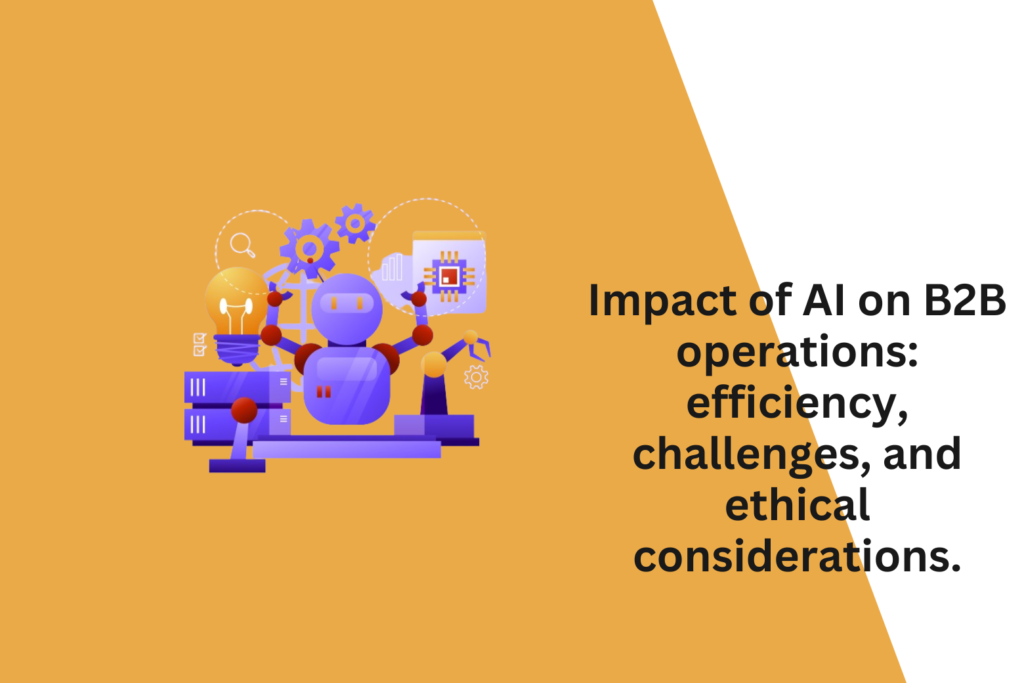
Efficiency:
- Automation of Routine Tasks:
- AI enables the automation of repetitive and routine tasks, freeing up human resources to focus on more strategic and complex activities.
- Data Analysis and Insights:
- AI algorithms analyze large datasets quickly, providing valuable insights into customer behavior, market trends, and operational efficiency.
- Predictive Analytics:
- AI facilitates predictive analytics, helping businesses forecast demand, identify opportunities, and make data-driven decisions.
- Chatbots and Virtual Assistants:
- AI-powered chatbots and virtual assistants enhance customer support by handling routine inquiries, providing instant responses, and improving overall customer satisfaction.
- Personalization:
- AI allows for personalized marketing campaigns, product recommendations, and tailored customer experiences, increasing engagement and conversion rates.
- Supply Chain Optimization:
- AI contributes to supply chain optimization by improving demand forecasting, enhancing logistics and inventory management, and identifying cost-saving opportunities.
- Enhanced Decision-Making:
- AI systems process vast amounts of data to assist in decision-making, providing executives with more accurate and timely information.
Challenges:
- Implementation Costs:
- The initial cost of implementing AI solutions can be a barrier for some businesses, especially smaller enterprises. This includes the cost of technology, training, and integration with existing systems.
- Data Quality and Bias:
- AI systems heavily rely on data. If the input data is biased or of poor quality, it can result in biased outcomes and inaccurate predictions, potentially reinforcing existing inequalities.
- Lack of Skilled Talent:
- There is a shortage of skilled professionals with expertise in AI. Recruiting and retaining qualified AI talent can be a challenge for organizations seeking to implement AI solutions.
- Integration with Legacy Systems:
- Many B2B organizations operate with legacy systems. Integrating AI solutions with existing infrastructure can be complex and require significant effort.
- Security Concerns:
- AI systems can be vulnerable to cyber threats. Securing AI applications and ensuring the privacy of sensitive data are critical challenges.
- Ethical Use of AI:
- Ensuring ethical use of AI, including transparency in decision-making processes, avoiding discrimination, and protecting user privacy, poses a challenge for businesses.
- User Acceptance:
- Employees and customers may be resistant to AI adoption due to concerns about job displacement, loss of personalization, or mistrust of automated systems.
Ethical Considerations:
- Bias and Fairness:
- AI algorithms may inherit biases present in training data. Ensuring fairness in AI outcomes and addressing biases is essential to prevent discriminatory practices.
- Transparency:
- There is a need for transparency in AI decision-making processes. Businesses should communicate how AI is used and be transparent about the data sources and algorithms employed.
- Privacy Concerns:
- The collection and use of personal data by AI systems raise privacy concerns. Businesses must adhere to data protection regulations and implement measures to safeguard user privacy.
- Job Displacement:
- The deployment of AI may result in job displacement. Ethical considerations include providing training and support for affected employees and considering the societal impact of automation.
- Accountability:
- Establishing accountability for AI decisions is challenging but crucial. It involves defining responsibility when AI systems make decisions that impact individuals or organizations.
- Regulatory Compliance:
- Ethical considerations also extend to complying with regulations related to AI use, ensuring that businesses operate within legal and ethical frameworks.
In navigating the impact of AI on B2B operations, organizations must strike a balance between efficiency gains, addressing challenges, and upholding ethical standards. This involves careful planning, continuous monitoring, and a commitment to responsible AI use.



